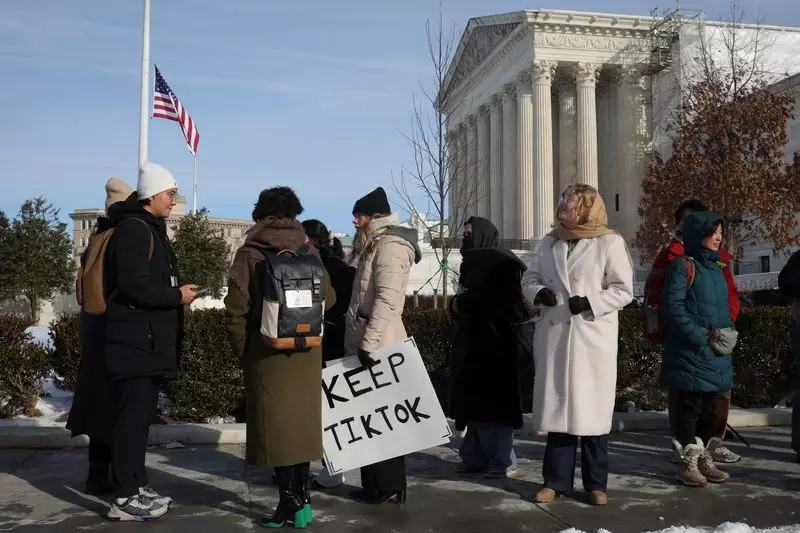The recent Supreme Court arguments concerning TikTok and its parent company, ByteDance, have highlighted a critical juncture in U.S. law and national security. At the center of this contention is a law compelling ByteDance to either oust its ownership of TikTok or face a ban in the United States by January 19. This requirement raises significant constitutional questions regarding the First Amendment and the scope of governmental power over private enterprises. The implications of these arguments extend well beyond TikTok, threatening to set a precedent that could affect numerous companies operating in America, especially those linked to foreign ownership.
Implications of Legislative Overreach
During the Supreme Court discussions, TikTok’s counsel, Noel Francisco, issued a stark warning about the potential ramifications of endorsing such a law. He asserted that if Congress can compel TikTok to divest under the pretext of national security, other companies could similarly be targeted. This raises a broader concern about government overreach; for instance, if legislation could mandate a company like AMC to censor movies, then the well-being of various sectors could be put in jeopardy. Thus, the arguments go beyond the realm of TikTok and touch upon fundamental issues of free expression and corporate autonomy in the U.S.
A Partisan Issue with Bipartisan Roots
The law was passed amid claims that TikTok poses a significant risk as a conduit for the Chinese government to surveil and influence American citizens. Despite previous bipartisan support for the enacted measure, its selective targeting of TikTok—without similar scrutiny of other entities with Chinese ties, such as Temu—was called into question. This inconsistency raises questions about whether Congress genuinely prioritizes national security or whether particular political agendas are being served. Jeffrey Fisher, representing TikTok content creators, aptly pointed out this inconsistency, implying that the Congress’s focus might not be as thorough or well-considered as claimed.
Solicitor General Elizabeth Prelogar defended the law, emphasizing its necessity in countering potential foreign control of American media channels. The government posits that surrendering control of TikTok is vital for national security. However, the characterization of TikTok solely as a tool for foreign adversaries glosses over the complexities of modern digital platforms, which operate as critical spaces for communication, culture, and creativity. As TikTok has amassed over 170 million users in the U.S., the app has become a central hub for modern expression, and to restrict access would equate to a more significant limitation on free speech.
Should the law take effect on January 19, it would bar platforms like Apple and Google from offering TikTok to new users, although current users might still retain some access to the app. However, this arrangement poses critical questions: How long before existing services degrade due to a lack of support? Will users gradually be nudged out of the platform, leading to a loss of a vital communication tool? TikTok’s utility for millions of Americans indicates the potentially seismic consequences of such action, making it not just a legal matter but a societal one as well.
The Role of Public Discourse and Future of Regulation
The Supreme Court’s deliberations also touched on whether the potential for TikTok being weaponized for propaganda by China was grounds enough for a ban. Francisco argued that media manipulation isn’t exclusive to TikTok and is prevalent in various other news outlets, a point that underscores the need to differentiate between platform governance and content censorship. The outcome of this case could lead to more robust regulations limiting the ability of foreign entities to own critical platform spaces, but it also represents a necessary debate about how such regulations fit within the fabric of First Amendment protections in an increasingly digital age.
Looking Ahead: The Broader Implications
As the legal battle continues, the implications for both TikTok and the broader landscape of foreign-owned companies operating in the U.S. cannot be understated. The potential for overreach and selective enforcement suddenly positions businesses under the shadow of political maneuvering rather than purely economic or constitutional considerations. Regardless of the Supreme Court’s eventual ruling, the outcome of this case could compel Congress to re-evaluate its stance on how technology firms are regulated in a global market fraught with security concerns. For now, the eye of the law is firmly on TikTok, but tomorrow it could just as easily turn its gaze elsewhere.

